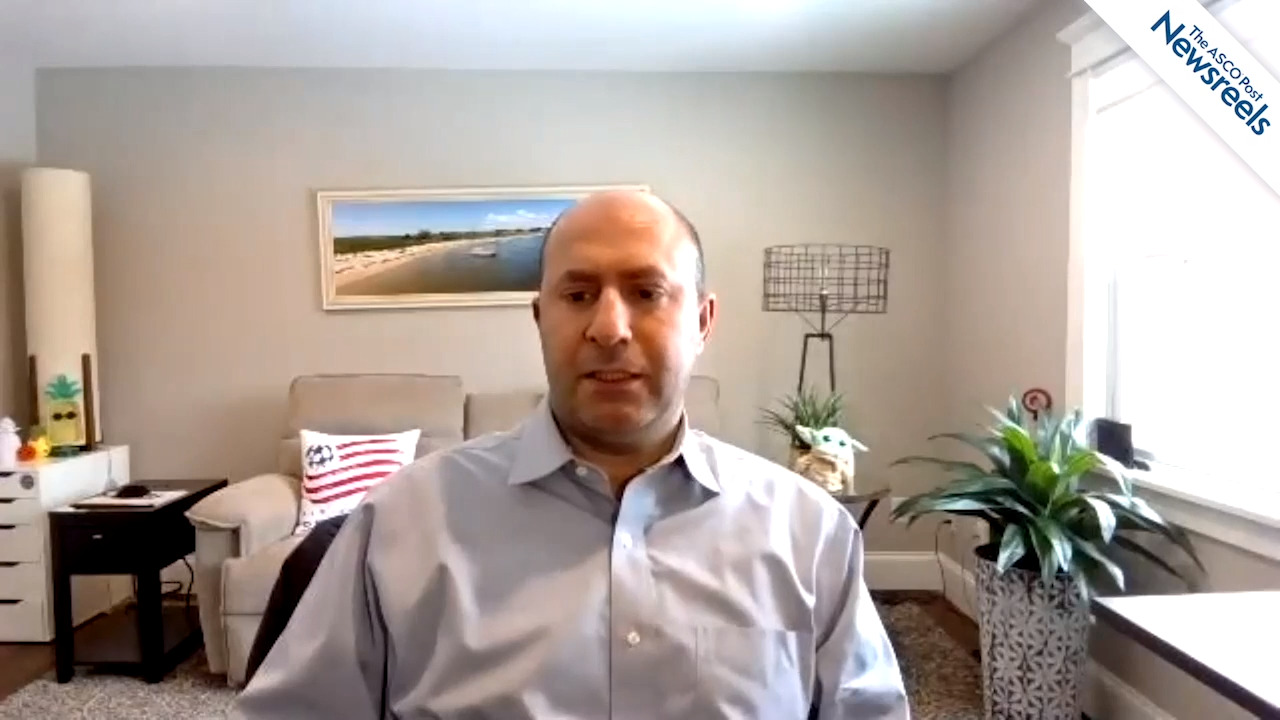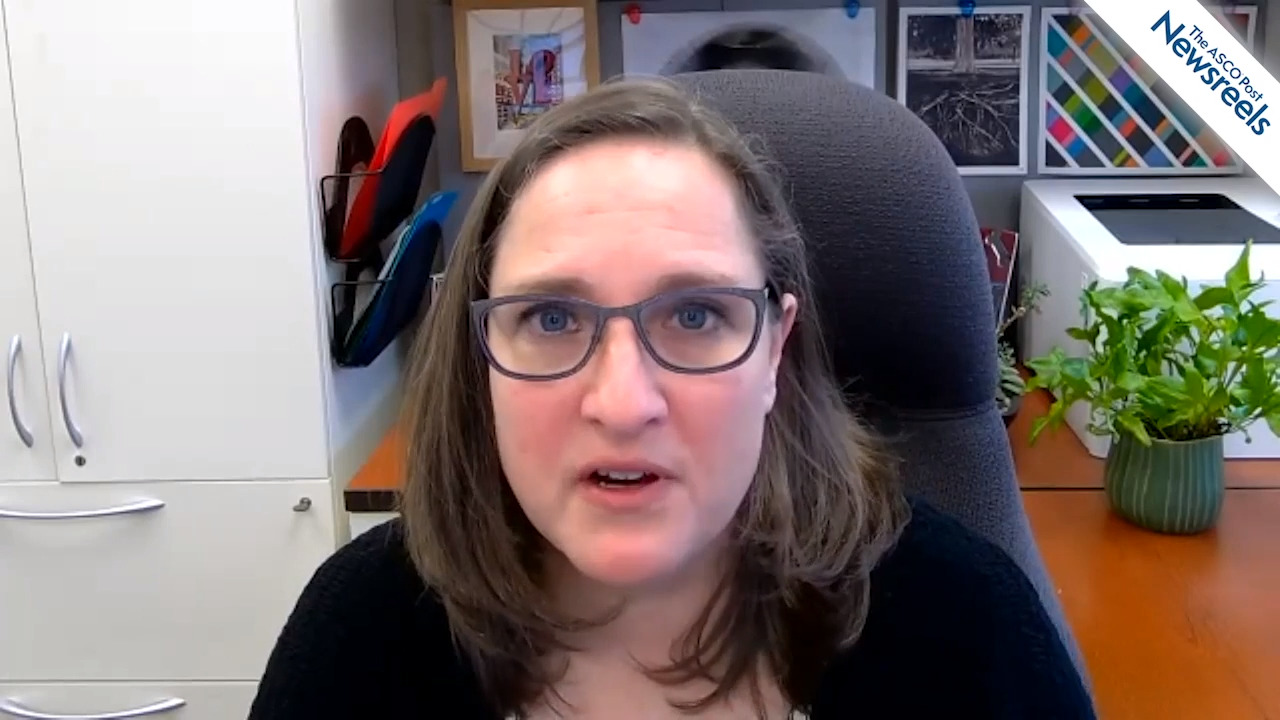Elizabeth R. Plimack, MD, on Bladder Cancer Highlights From the 2021 Genitourinary Cancers Symposium
2021 Genitourinary Cancers Symposium
Elizabeth R. Plimack, MD, of Fox Chase Cancer Center, discusses key abstracts discussed at this year’s meeting on bladder cancer and offers her views on the latest trends and findings (Abstracts 391, 393, 434).
The ASCO Post Staff
Toni K. Choueiri, MD, of Dana-Farber Cancer Institute, discuses a preliminary phase II analysis of the HIF-2a inhibitor belzutifan in combination with cabozantinib, which showed antitumor activity in previously treated patients with metastatic clear cell renal cell carcinoma (Abstract 272).
The ASCO Post Staff
Elizabeth R. Plimack, MD, of Fox Chase Cancer Center, discusses key abstracts discussed at this year’s meeting on renal cell carcinoma and offers her views on the latest trends and findings (Abstracts 269, 308, 270, 313).
The ASCO Post Staff
Monika Joshi, MD, of Penn State Hershey Cancer Institute, discusses phase II results from the DUART study, which explored the efficacy of concurrent durvalumab, a checkpoint inhibitor, and radiation therapy followed by adjuvant durvalumab in patients with localized urothelial cancer of the bladder (Abstract 398).
The ASCO Post Staff
Neeraj Agarwal, MD, of Huntsman Cancer Institute at the University of Utah, discusses final results of the phase III TITAN study, which showed apalutamide plus androgen-deprivation therapy improved overall survival, reducing the risk of death up to 48%. This combination treatment also delayed castration resistance and maintained health-related quality of life for patients with metastatic castration-sensitive prostate cancer (Abstract 11).
The ASCO Post Staff
Toni K. Choueiri, MD, of Dana-Farber Cancer Institute, discusses phase III results of the CLEAR study, which showed that for first-line treatment of advanced renal cell carcinoma, lenvatinib plus pembrolizumab improved outcomes vs sunitinib. Lenvatinib plus everolimus also improved progression-free survival and overall survival rates vs sunitinib (Abstract 269).





